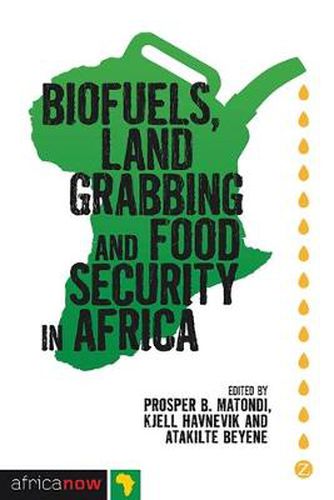Readings Newsletter
Become a Readings Member to make your shopping experience even easier.
Sign in or sign up for free!
You’re not far away from qualifying for FREE standard shipping within Australia
You’ve qualified for FREE standard shipping within Australia
The cart is loading…






The issue of biofuels has already been much debated, but the focus to date has largely been on Latin America and deforestation - this highly original work breaks fresh ground in looking at the African perspective. Most African governments see biofuels as having the potential to increase agricultural productivity and export incomes and thus strengthen their national economies, improving energy balances and rural employment. At the same time climate change may be addressed through reduction of green house gas emissions.
There are, however, a number of uncertainties mounting that challenge this scenario. Using cutting-edge empirical case studies, this knowledge gap is addressed in a variety of chapters examining the effects of large-scale biofuel production on African agriculture. In particular, ‘land grabbing’ and food security issues are scrutinised, both of which have become vital topics in regard to the environmental and developmental governance of African countries.
A revealing book for anyone wishing to understand the startling impact of biofuels and land grabbing on Africa.
$9.00 standard shipping within Australia
FREE standard shipping within Australia for orders over $100.00
Express & International shipping calculated at checkout
The issue of biofuels has already been much debated, but the focus to date has largely been on Latin America and deforestation - this highly original work breaks fresh ground in looking at the African perspective. Most African governments see biofuels as having the potential to increase agricultural productivity and export incomes and thus strengthen their national economies, improving energy balances and rural employment. At the same time climate change may be addressed through reduction of green house gas emissions.
There are, however, a number of uncertainties mounting that challenge this scenario. Using cutting-edge empirical case studies, this knowledge gap is addressed in a variety of chapters examining the effects of large-scale biofuel production on African agriculture. In particular, ‘land grabbing’ and food security issues are scrutinised, both of which have become vital topics in regard to the environmental and developmental governance of African countries.
A revealing book for anyone wishing to understand the startling impact of biofuels and land grabbing on Africa.